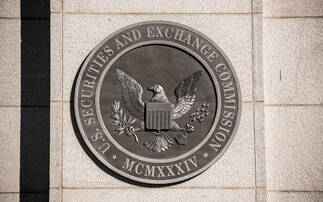Lawrence Gosling talks to David Harding, chief executive and founder of Winton Capital, about how he has successfully used the 'science of investing' to build a global group with $30bn in AUM.
 David Harding is one of the most renowned hedge fund managers this country has ever produced.
David Harding is one of the most renowned hedge fund managers this country has ever produced.
As the 'H' in Man Group's famous AHL strategy, he has a claim to be one of the foremost innovators of systematic investing and quant trading. He is now chief executive of Winton, a company he co-founded in 1997 and which currently manages over $30bn in assets across its three programs.
His philanthropic pursuits include endowments to fund the Winton Chair for the Public Understanding of Risk at Cambridge, and the Harding Centre for Risk Literacy at the Max Planck Institute in Berlin, as well as donating £5m to the Science Museum to build a mathematics gallery. This is the largest single donation the institution has ever received.
The 25 richest hedge fund managers in the UK
His name recently hit the headlines again when he went public with his financial backing of the 'Britain Stronger in Europe' campaign.
One of the acknowledged fathers of algorithmic trading, Harding questions why the idea of using statistics in investing has been "Balkanised". He also suggests what sets him apart from others that are capable of seeing the same opportunity - he particularly singles out the actuarial profession- is his hunger for success and desire to "prove a point".
Given Winton's achievements in the intervening years, he has certainly done that.
It is very advantageous to understand the level of uncertainty in the inferences you are making, and this is a fundamental mistake that human investors make.
What first piqued your interest in investment?
As with a lot of people, my interest came through my father, who followed the stockmarket quite closely. I have a strong recollection of the 1974 bear market. I remember watching it on the television as a precocious 12-year-old.
It hit its lowest on 1 January 1975 - I think it was an 80% decline. The entire British stockmarket was worth £10bn, and the trade and industry secretary, Anthony Wedgwood Benn, could, in fact, have nationalised the whole of British industry for £10bn.
After studying physics at college, I applied for lots of New York banking jobs as they all appeared to be the most glamorous. I was turned down for all of them.
I only got one job offer, in the fixed interest department of Wood Mackenzie. I had to have all my hair cut off because I had peroxide blond and pink hair. It was a sacrifice to have all my hair cut off one day and then buy a suit.
So were you an early Sex Pistols fan?
I was definitely a bit of a middle-class punk rocker!
How challenging did you find Wood Mackenzie?
The Holy Grail of fixed interest departments at that time was the yield surface. It was a three-dimensional graph which matches maturity, coupon and price. By modelling in three dimensions, you could find what is mispriced with respect to the yield surface.
That would be a hedge fund method. The term 'hedge fund' had not been invented then, but you could maximise return on capital by composing your book of mispriced securities.
At its most simple, your approach has been about identifying mispricing, hasn't it?
We started by looking into technical analysis - directional position-taking on the basis of historic prices (no arbitrage, no anomalies).
All the evidence was it worked - which is completely wrong, because it should not work. That was the thing which strongly required an explanation.
What became apparent was we were forecasting the probability distributions of returns. None of these technical methods in any sense deterministically forecast anything. But to say they do not forecast them well is different to saying they do not forecast them at all.
There is a binary view among people which is either your forecasting is perfect or it is useless. The middle ground is your forecast has a level of efficacy - not a very high level - but if you have that as a method of forecasting you employ over and over again in many markets and over many years, then that ends up paying off.
We found this was true for technical analysis. Once you realised you are forecasting probability distribution conditional upon knowing something, then you can leave the technical analysis behind. You can then research conditional probability distribution on anything.
Actuarial science is not a profession that is strong on statistics and it is not that strong on forecasting. I think actuaries have a tendency to steer away from taking risk.
How would you describe the Winton approach?
I would say Winton is a company that specialises in the application of mathematics to investing. Statistics is often described as the science of decision-making under conditions of uncertainty.
Another description of statistics would be the science of inference. It is an approach to inference, and once again, the composition of an investment portfolio requires you to make inferences about the future.
It is very advantageous to understand the level of uncertainty in the inferences you are making, and this is a fundamental mistake that human investors make.
Obviously, you can try and reduce that uncertainty by knowing more and more about the situation, like Warren Buffett. He reduces the uncertainty as much as he can by knowing as much as it is possible to know. That is a very different style to ours.
The ten biggest hedge fund trends for 2016
We have a much higher level of uncertainty than Warren Buffett when he makes an investment. But we have a much bigger and more dynamic portfolio. There are lots of ways to skin a cat, or lots of roads to Rome. My view is the success of our approach does not invalidate anybody else's.
Is impatience another facet of being a bad investor?
Well, transaction costs are a very important part of investing and there is a strong tendency by normal investors to overtrade. This is because their opinions are quite volatile, and if your opinion is volatile, you have to keep changing your position to reflect this.
Every time you do that you incur transaction costs, and transaction costs on each time you change your opinion are very consistent. Many an optimistic amateur has come a cropper on mis-estimation of transaction costs.
There is a binary view among people which is either your forecasting is perfect or it is useless. The middle ground is your forecast has a level of efficacy.
How do you justify the firm's fee structure?
You may find it hard to believe, but our fee structure is supposed to be cheap. When we started, our fee structure was one and 20 on our flagship funds and remained one and 20, while our competitors and the industry had always charged two and 20. We have made money for people and we have consistently charged the 20. But is cheap good? Not necessarily.
With many things, people have a preference for paying more for quality. There is some question as to whether or not you want your investment manager to be cheap or expensive.
As you develop the business to have more pension fund-type clients do you envisage the structure changing?
We are very open to being innovative with our pricing. But we are not interested in taking lower overall fees, as long as our product is working. The broad idea is to charge management and performance fees; a modest management fee and a decent performance fee.
We have a much higher level of uncertainty than Warren Buffett when he makes an investment. But we have a much bigger and more dynamic portfolio.
How far can you take the approach to the way you invest currently?
Investment markets are just composed of a sea of numbers. You would really think there would be some approach to apply maths to those numbers to guide investment.
It is a surprise that sort of idea - using maths to guide investment - has been almost put in a sort of Balkanised ghetto as being systemic or quant.
These terms are almost derogatory. It is the most natural thing in the world to use mathematics to try and bring order to all the numbers in financial markets. You need to be a mathematician, yes, but you also need to spend your life in that profession.
Actuarial science, a profession which applies itself to the mathematics of financial markets, is not a profession that is strong on statistics and it is not that strong on forecasting. I think actuaries have a tendency to steer away from taking risk.
I am not surprised what we do at Winton has slightly passed them by. The other top people, Renaissance Capital, D.E. Shaw, Two Sigma Investments, none of the leading firms are actually run by actuaries.
Contrarian: Time for wealth managers to ditch hedge funds?
Why didn't the actuaries do it? Early on in my career there was a schism. At that point, the actuaries did not believe the efficient market theory.
Now, with the benefit of hindsight, I would say the actuarial profession was on the right track. But I remember reading a monograph by the actuaries at that time, which said the logical consequence of these ideas is it should be possible to develop an asset allocation strategy with supernormal returns.
Quite an opportunity for an enterprising young actuary. But, of course, the enterprising person in question has to be someone who is desperate and craves success - because that is what it takes to start a company flying in the face of the conventional wisdom.
That is maybe not the only thing, but that is what I was: sufficiently desperate and needing to prove a point. Having these various motivations is what it takes to make you start a company- it does not just happen over a year and a half.












